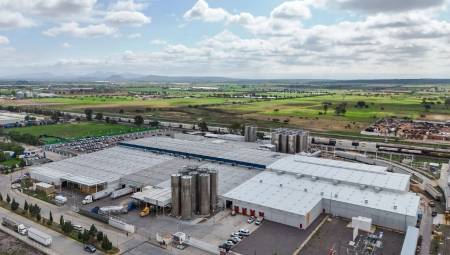United States. Despite the push towards cleaner and more sustainable energy, internal combustion engines (ICMs) continue to play a crucial role in the global economy, according to a new report from the Engine Technology Forum (ETF).
The report, titled "Powering the Future: Internal Combustion Engines and the Future of Clean Energy," delves into the continued role of ICMs, even in a world that is geared toward lower carbon emissions.
The report highlights that ICMs will remain essential in a wide range of global applications due to three key factors:
- Global dependence: The infrastructure and use of ICM are deeply rooted in economic sectors where viable alternatives do not yet exist.
- Technological evolution: Constant improvements in efficiency and emission reduction, along with the integration of cleaner fuels, allow ICMs to compete effectively with new emerging technologies.
- Transition challenges: Economic barriers, lack of infrastructure, and uncertainty around new energy systems slow down the total replacement of ICMs with cleaner alternatives.
Allen Schaeffer, CEO of the ETF, says: "Our global economy relies almost entirely on internal combustion engines for its energy and mobility needs. Decarbonization technologies have limits and barriers, but ICMs are uniquely positioned to adapt to a low-carbon economy using renewable fuels."
The report predicts that ICMs will not only remain relevant, but will also experience significant growth over the next decade. It is estimated that the combined annual growth rate for ICMs could reach up to 9% between 2023 and 2030. Although regulations are driving the adoption of zero-emission vehicles, it is projected that MCIs will still be responsible for between one-third and one-half of the new vehicle fleet by 2032. In larger commercial vehicles, ICMs are anticipated to account for 75% of new units.
"The future of ICMs lies in improving efficiency and reducing emissions through the use of renewable fuels such as renewable gasoline and diesel, renewable natural gas, and developing e-fuels," Schaeffer added.
In addition, the market for renewable bio-based fuels, which currently accounts for around 5% of the transport sector's energy consumption in the United States, is expanding. Not only do these fuels offer immediate benefits in reducing greenhouse gases, but they are also crucial for the transition to a more sustainable energy system.
In summary, while the transition to a cleaner future is imminent, internal combustion engines will remain an essential part of the solution, providing significant emissions reductions while moving towards a lower-carbon world.














